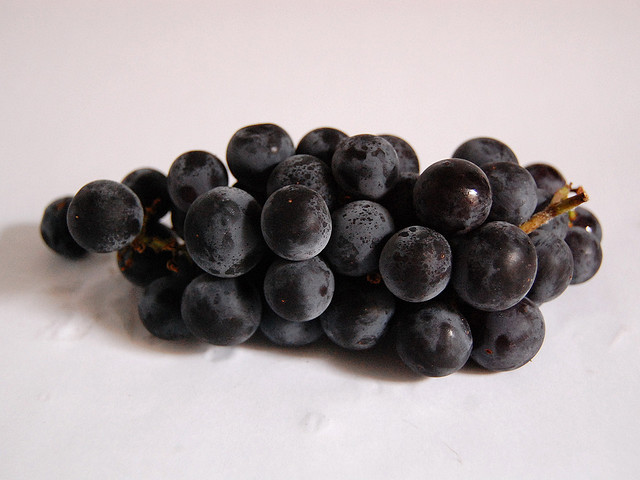Can I Eat During Labor?
Absolutely! Some women feel hungry and thirsty during labor, especially in the early stages. Eating is especially important during early labour because it will keep up your strength and provide you with the energy you’re going to need in the long haul of active labor. You may naturally no longer wish to eat once you enter more active labor and get closer to pushing. If you are hungry during active labor, make sure you eat small portions of easily digested foods that you know you like and that sound good to you at the time. Choose foods that are light and stomach-friendly. Complex carbohydrates are better choices for labor foods than sugary, fatty or fried foods.
Restricting food in labor can cause problems.
Besides the stress factors, restricting food intake during labor can cause dehydration and ketosis, which is when the body starts to break down its own fatty stores for energy. Ketosis can lead to nausea, vomiting and headaches, and may be a sign of exhaustion, which is why it’s best avoided when you have hard physical work ahead of you.
What are the best foods to eat during labor?
It’s best to be guided by what you feel like eating, within reason! It’s worth remembering that high-fat foods can be heavy on the stomach and could make you feel sick. Carbohydrates are good foods for labor because they give a long, slow release of energy to help you through contractions.
Labor Foods to eat while in early labour:
- whole wheat/seed crackers
- graham crackers
- fruit
- granola bars
- fresh smoothies
- bananas/apples/celery with almond butter
- whole wheat/rice pasta
- miso soup/broth
- yogurt
- herbal tea, especially nettle and raspberry leaf
- natural white grape juice
- natural apple juice
- popsicles, preferably homemade with natural juices
- natural fruit juice (not orange juice)
- honey-sweetened tea frozen into ice cubes
- wholesome cereals
- noodles
- brown rice
- cooked cereals: quinoa, millet and oats
- scrambled or boiled egg
- applesauce
What should I drink during Labor?
Labor can be long thirsty work, so it’s very important to stay hydrated during this period. Try to take a sip of something every 15-30 minutes and at least once an hour. Make sure one of your labor support helpers has a beverage available to you to at all times. A good tip is to put a straw in your drink so your doula or partner can hold it to your lips every so often, ideally after each contraction. If you feel like drinking, you will, if you don’t, you won’t. There is no need to have a big conversation about it every time, but make sure someone is keeping an eye on your general fluid intake. A good rule of thumb is to be encouraged to take a sip of water after every contraction, and aim for drinking 1-2 litres of water per hour.
Isotonic drinks used by athletes are recommended for labor, particularly if you don’t feel like eating. You can buy electrolyte powders like Emergen-C from pharmacies such as Burrard Pharmasave. Isotonic drinks are quickly absorbed and give your body energy in the right form for vigorous exercise. Filtered water with fresh lemon and a pinch of Himalayan rock salt is always a good choice. Otherwise, just use diluted apple juice with filtered water. Orange juice is not usually recommended as it might make you feel sick or vomit. Another good option is to make ice cubes out of your favorite fruit juice or smoothie and suck on them during your labor. It’s a great alternative to just plain water and will give you that extra energetic boost when you need it the most. Coconut water is one of the best things to drink during labor, as it has a mild taste and is full of electrolytes. Be careful choosing a flavor, because you may taste it again later and it might bother you. Also, be sure to avoid sugary, fizzy, carbonated drinks.
What if I need a caesarean section?
The reason withholding food during labor became routine is because of the worry a woman may end up having a cesarean birth. When under general anesthetic, there is a very small risk that food from the stomach might be regurgitated and inhaled into your lungs. However, the risk of this happening is extremely low. For a start, most caesareans are not carried out under general anesthetic nowadays. The majority are performed under an epidural or spinal injection, meaning you would be conscious while the cesarean surgery was being performed. Secondly, modern anesthetic practice means that even if you were unconscious, the risk is extremely low. As you fall to sleep, the anesthetist will put a little pressure on the cricoid cartilage in your neck to compress the gullet (esophagus), and this will prevent you from inhaling anything from your stomach.
NOTE: Be sure to ask your practitioner and birthplace about their policies about food and drink during labor. Most hospitals here in Vancouver do not try to restrict food during labor unless there have been complications or interventions along the way.
What about labor food for dad?
Make sure he has snacks packed for him as well! Avoid anything that will linger unpleasantly on his breath (garlicky pasta is out!) Dads may like to have some easy to grab, quickly nutritious snacks like trail mix, granola bars, peanut butter, nuts, fruit. He will especially be thankful for preparing sandwich or other simple meal ahead of time. He is going to need a lot of energy and support to prepare himself for the journey with you while you are going through the intense stages of labor. You will need a lot of attention, patience and support, making sure dad is prepared with nourishing food is a good way to help him stay focused, motivated and energized for the home stretch!
HAPPY LABORING!
Teresa Butler, Nutrition Student at The Institute of Holistic Nutrition in Vancouver, BC.

